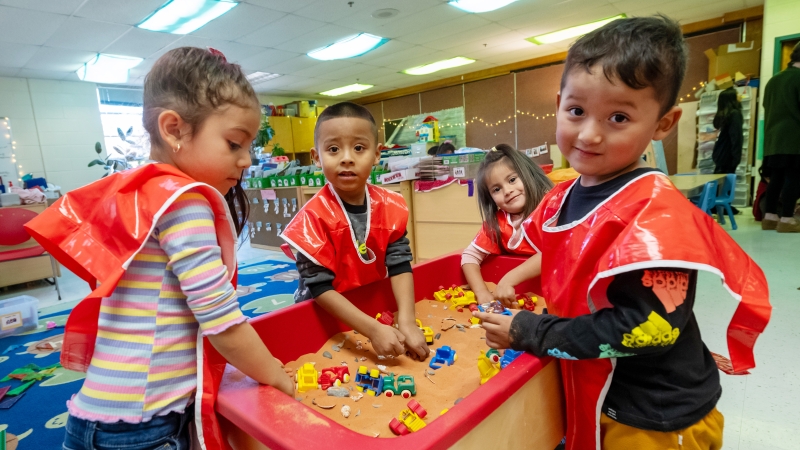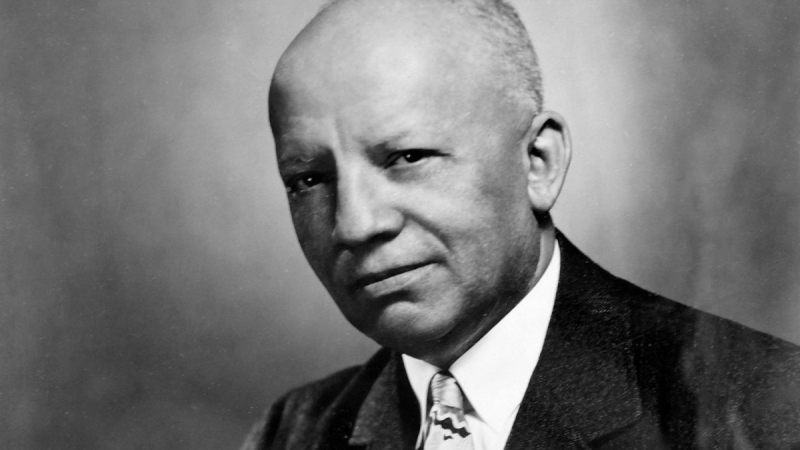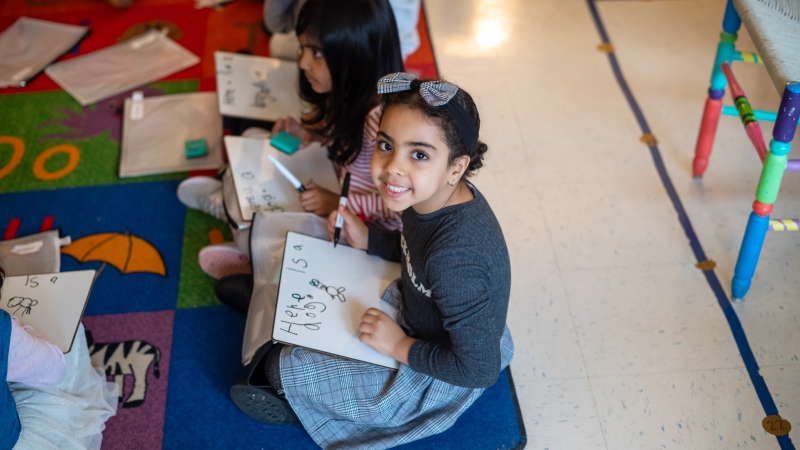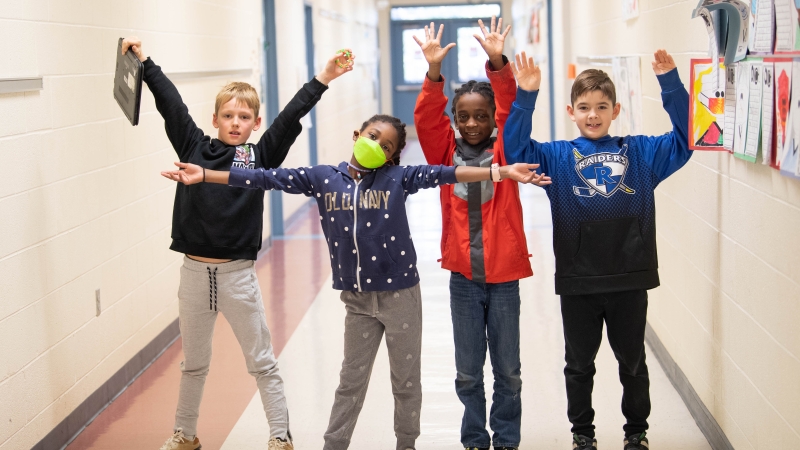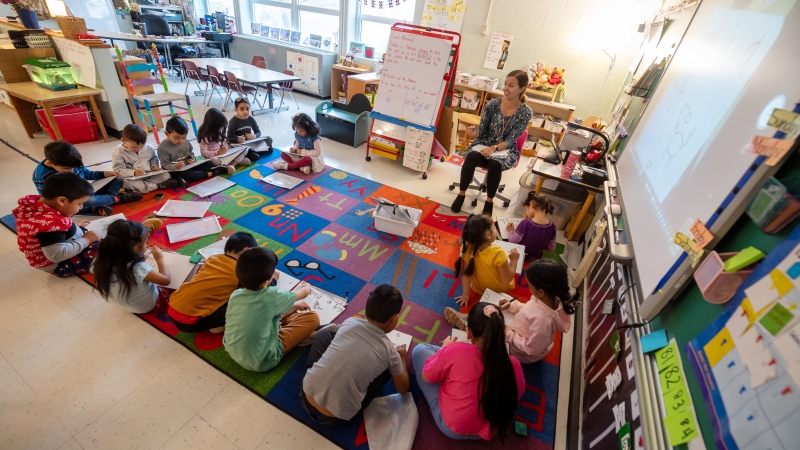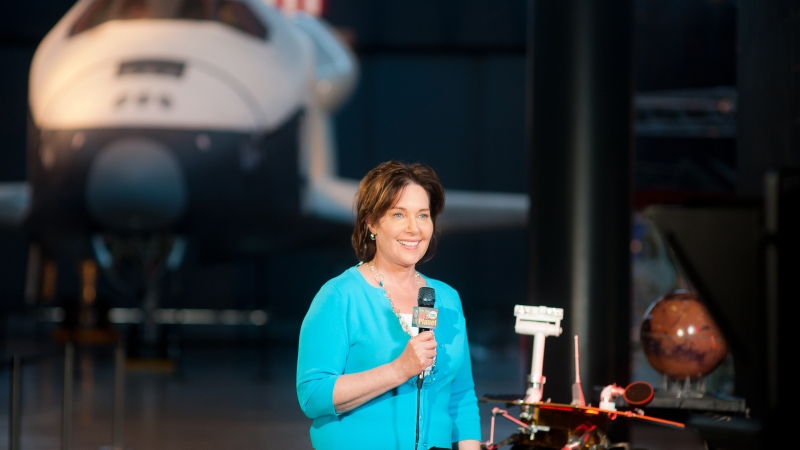
Haycock Elementary School Students to Recreate History Performing at Ford’s Theatre
It’s no secret that great Americans are known for their speeches. From Patrick Henry’s “Give Me Liberty or Give Me Death” to Dr. Martin Luther King Jr.’s “I Have a Dream,” the power of the spoken word can inspire positive change and leave a lasting impact. Today, students at Haycock Elementary School in Falls Church are experiencing that power firsthand in an exciting lesson that ties history and theatrical performance together.
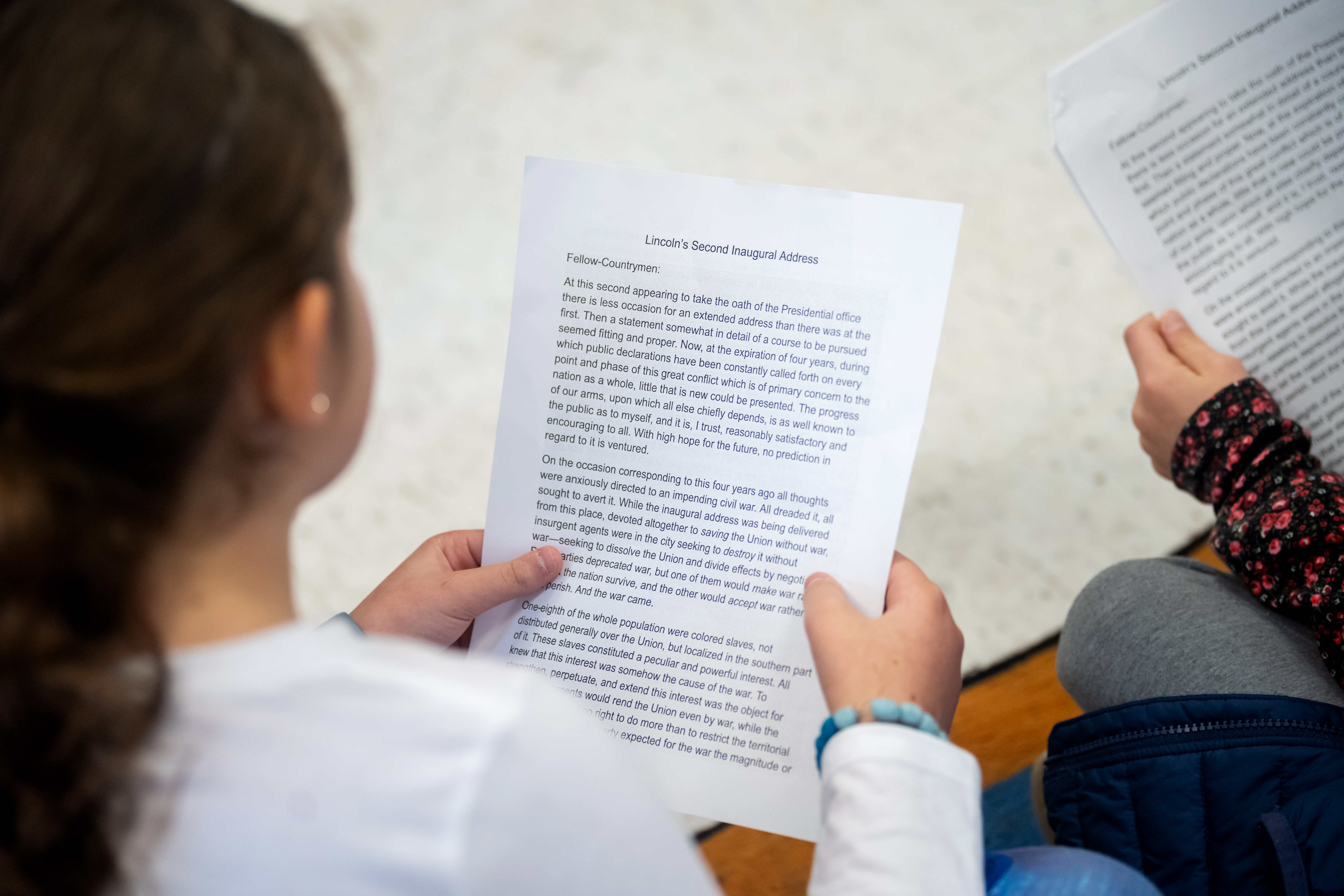
Ford’s Theatre selected Haycock’s fourth-grade class to participate in the Abraham Lincoln Oratory Residency and Festival. The program allows D.C.-area students to recite a speech given by a famous American on the theater’s legendary stage. Many of the selected speeches come from President Abraham Lincoln, who was assassinated at Ford’s Theatre in 1865.
“I’m amazed, I can’t believe we get this opportunity,” said teacher Jon Baker. “We were shocked that we were selected.”
The students will take the stage in early February. But first, as with any performance, they must rehearse.
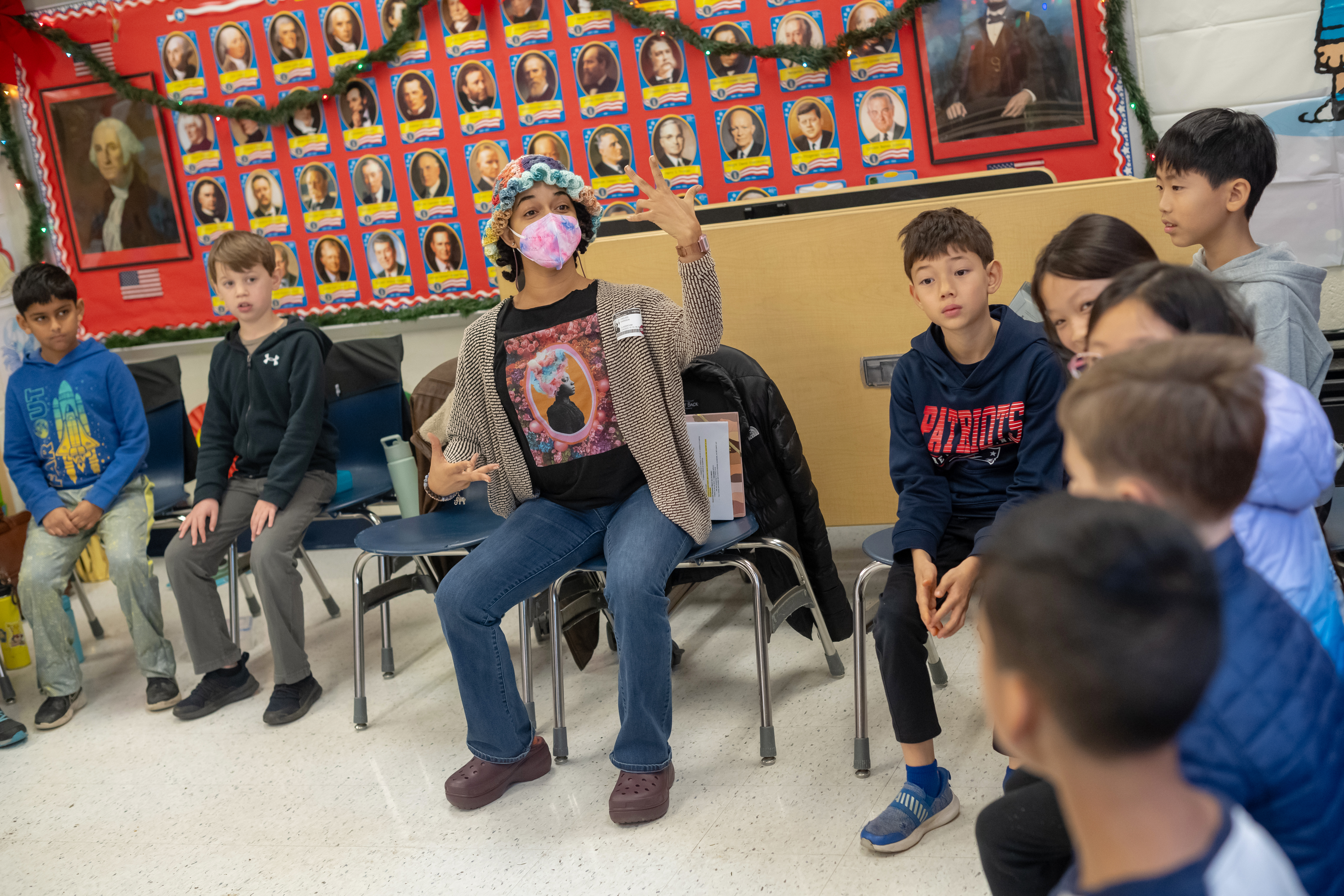
“Relax your shoulders! I want you to plant your feet on the ground!” Ford’s teaching artist, ChelseaDee Harrison, enthusiastically told students in Mr. Baker’s class. In the first of her five workshops with the students, Harrison demonstrated proper posture and breathing. Mastering both skills, she says, is necessary. “As a public speaker, when you go on stage you don’t have anything except for your voice and body,” she explained to the class. Next, they will memorize their selected speech and turn it into a performance.
There are six fourth-grade classrooms at Haycock Elementary. Each one chose a different speech to perform. Mr. Baker’s class selected Abraham Lincoln’s “Response to a Serenade.” Though it’s a lesser-known speech, the informal remarks the 16th president gave outside the White House on July 7, 1863, laid the groundwork for perhaps the most famous speech in American history: the Gettysburg Address.
“We thought that speech would be one that we could help teach people about something they’re not familiar with, and the students liked that,” said Baker.
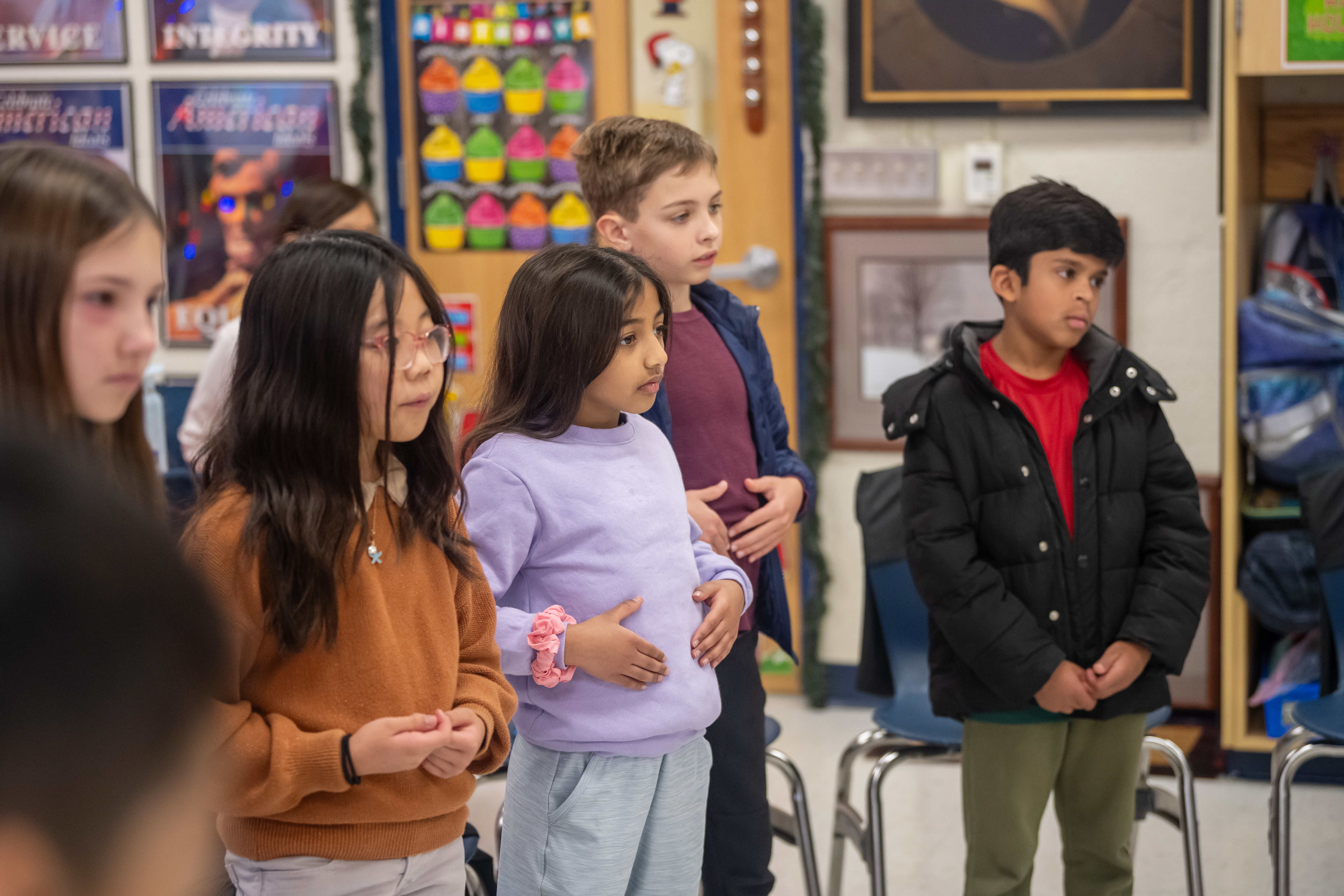
The students are already learning about the speech and President Lincoln’s talents as an orator.
“We learned Abraham Lincoln made it up as he went. He was good at that,” Mr. Baker’s student, Esme, said.
The students will also learn the historical context of the speech, which will help them understand the words they will recite in front of hundreds of spectators.
“We’re thinking about muscle memory, getting the words into our body, embodying the messages and themes of the piece so we can bring it to life for the audience,” explained Harrison.
The workshops also give the fourth graders skills they can use off the stage. By sharpening their oratory skills and working together to craft a performance, they’re becoming better communicators and collaborators — skills outlined in FCPS’s Portrait of a Graduate. Some students already found ways to apply these skills in other areas minutes after the first workshop ended.
“I have to give a speech at my church. It could help me with that,” said Mr. Baker’s student, Grace.
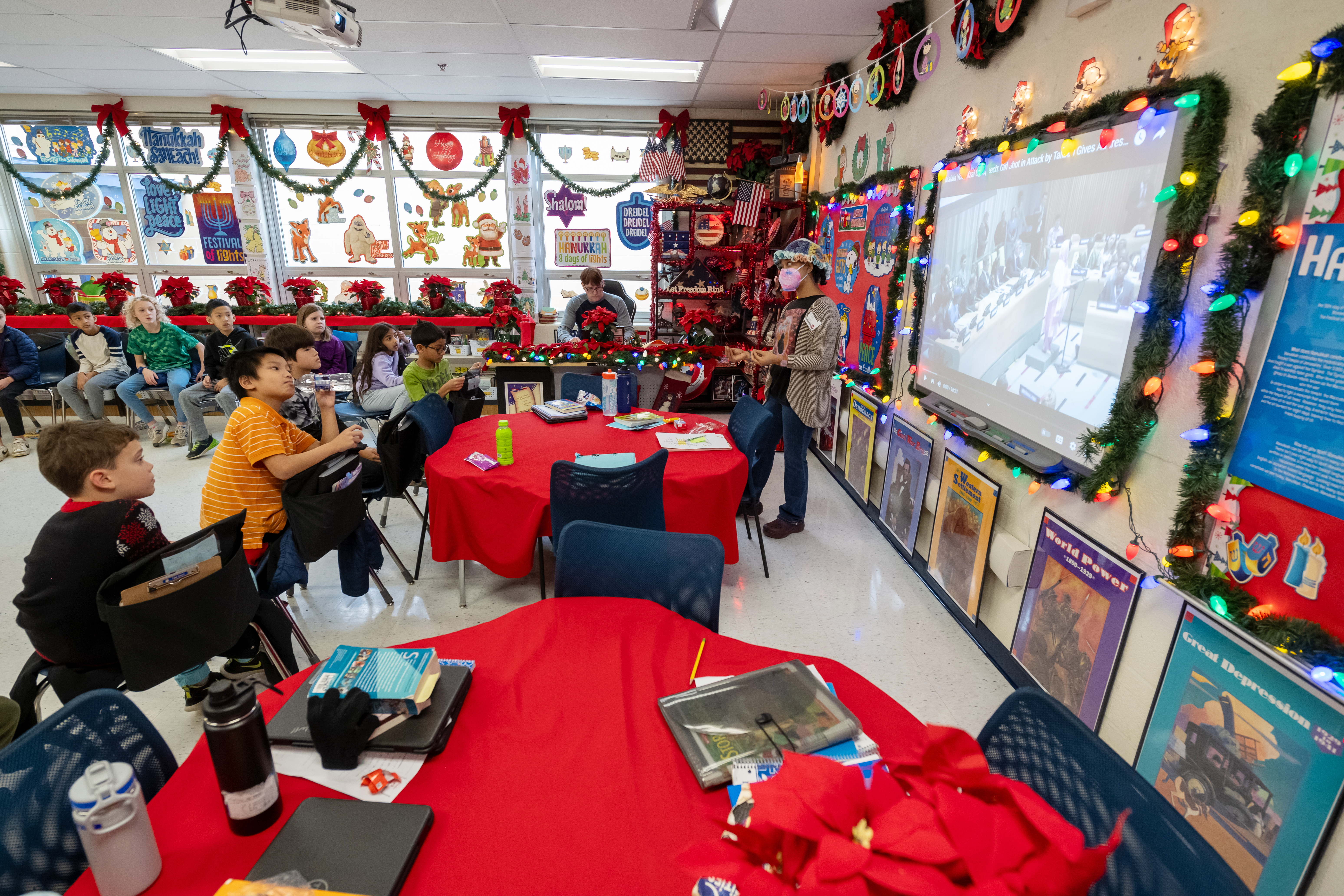
Her classmate, Somil, agreed, finding a way to use oratory skills in his martial arts class. “I have to give a speech when I get my black belt,” he explained.
Another student, Krish, is thinking ahead to his next class presentation. “I could practice my speech and posture,” he said.
“It could help me to have good posture when I play my instruments,” thought Alex.
Regardless of where and when they choose to use these skills, the students are excited to learn more — and to give the performance of a lifetime.
“I think it’s so natural, the instinct to speak and to be heard, to have something to say, to be passionate about something,” said Harrison. “These folks here have a collaborative spirit. They have a performer’s instinct. They’re all natural performers; I could see it so clearly. They’re going to be fine.”

